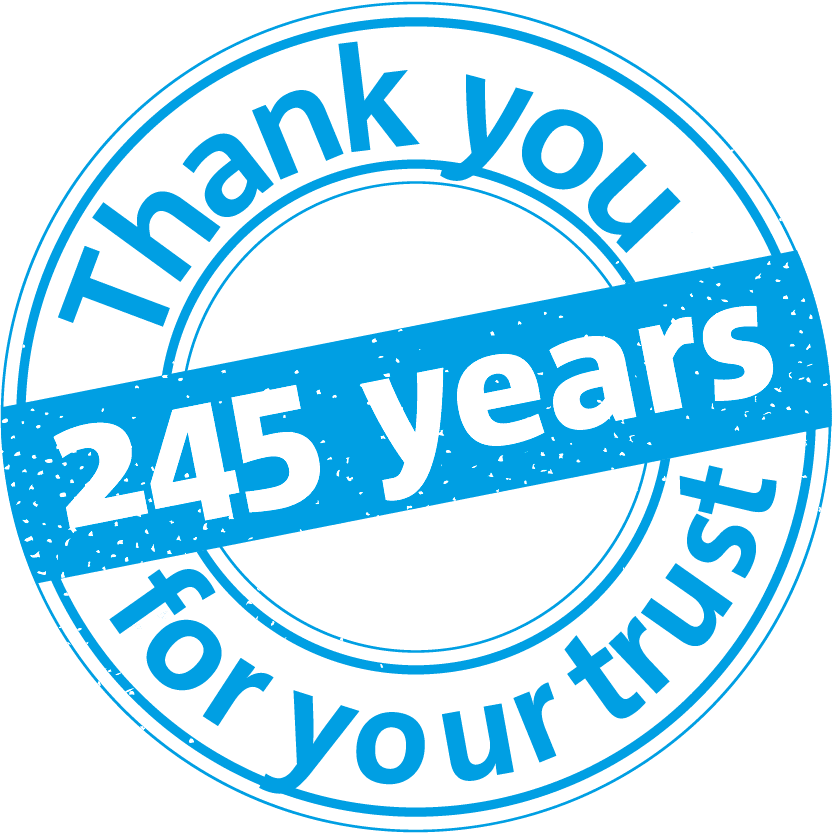Dennis Nijssen - Move Manager

We continue the interesting series of interviews that provide more insight into the work and the people who together form De Haan:
This time a conversation with Dennis Nijssen, dedicated contact for two of our global corporate accounts.
"I like nothing more than to relieve stress from my customers”
For those who don't know you, can you tell us a bit about yourself?
I entered the moving industry through an internship at the Sales department at De Haan during the third year of my study of Sports Management. Working at McDonalds was my part-time job from the age of 16. After my studies I worked there full-time for six months. Then I applied for a job at De Haan. I liked the atmosphere and working environment during that six-month internship at De Haan at the time, but I wanted to complete my four-year study first.
I have now been working at De Haan for eight years. I started as a Move Coordinator. In order to further develop myself, I then worked as an appraiser for two years. This will give you an increasing understanding of the moving profession. I now arrange everything from A to Z in my current position as Move Manager.
What is the difference between coordinating a move and managing a move?
As a Move Coordinator you only pick up a move after it has been booked by one of your colleagues. A Move Manager takes care of everything: from that first request until a file is closed. There are several Move Managers working at De Haan. I specifically deal with two major clients.
Where do you get your satisfaction from?
I greatly appreciate the confidence that De Haan has given me to be able to independently execute these two large contracts from A to Z. This trust and being able to design the implementation in my way, within the given guidelines of course, ensure that I enjoy my work.
I like nothing more than to relieve stress from my customers. If you read in their review afterwards that the move with us was their best ever, it gives enormous satisfaction!
You deal with many different nationalities. How do you deal with that?
Every nationality has a different way of looking at things or has certain cultural habits. For example, over time I have experienced that Italians like to negotiate. I enjoy exploring and anticipating the different international cultural approaches to customer relations.
When it comes to dealing with expectations, there is of course also a difference between people who have never moved and people who know the ropes. Especially for customers who have no experience yet, you can clearly explain what we can do for them to relieve stress. Actually, I like nothing more than to elaborate and explain.
Are people experiencing more stress than usual when moving this year?
Especially during the second corona wave in autumn 2020, there was more stress I can tell. With the first corona wave, it was all still new and people accepted more that certain things were not possible, borders were closed and travel was not possible. In the past six months, however, I have noticed less understanding for the snags that come with a move due to the corona measures. For example, the security measures. Or considerable delay in air freight because fewer planes are going and there is therefore a shortage of space in these planes.
We also have to take into account less availability of sea containers because vessels have been stationary. For example, I recently had a move for a household item that would fill a 20ft container, but because these containers were not available, I had to book a 40ft container to quickly arrange the departure for the customer. All of these scenarios require good communication, well-informed decisions and mutual understanding. That is sometimes difficult, but as a Move Manager you know the expectations of your customer well. It is my job to manage those expectations correctly through my information provision.
Do you have a lot of things planned for this week?
I am dependent on the requests I receive from the contracts under my responsibility. Today that is not much, but I never know how a week will turn out.
In addition, we have a culture of helping each other within De Haan, so if my colleague is very busy, or vice versa, we help out.
I also have my duties as chairman of the Works Council. The Works Council represents the interests of both employer and employee. The introduction of our bicycle plan is a great current example of this. Good for the health of the employee and therefore in favor of their employability in the company.
What question is most frequently asked of you?
I notice that many people have questions about import duties that are part of their household relocation. Suppose you sent your household effects from the Netherlands to a destination a few years ago, and you bought these items in the Netherlands. The moment you carry this out, the Dutch customs no longer sees this as Dutch relocation goods. This means that in principle you have to pay import duties on this when you return to the Netherlands, but if you meet certain conditions you do not have to pay import duties. At this point the questions arise. This is mainly due to the fact that the list of customs conditions, stated on the website of the tax authorities, does not always correspond to the way in which the customs officer assesses import documents and exceptions in practice. In these nuances and questions I try to guide people as well as possible.
What would you like to share with the reader?
De Haan has a customs-certified warehouse. As a moving company with this AEO certificate, we have demonstrated that we have our approach and security of the spaces in order. This means a considerable limitation of the risks of control, delay and damage. Our AEO certified warehouse saves enormous time for the customer. About ten years ago, all documents had to be sent to customs for approval before the arrival of the vessel. This is no longer the case. Instead of two to three weeks, it is now possible to deliver in the Netherlands within five working days.
In general, I think it is important that you treat a customer as you would like to be treated yourself. Mutual trust is important. Keeping agreements, treating each other sincerely, anticipating and good communication. With all this I hope to contribute to reduce the stress and worries surrounding moving for our customers so that they quickly feel at home in their new place!p




